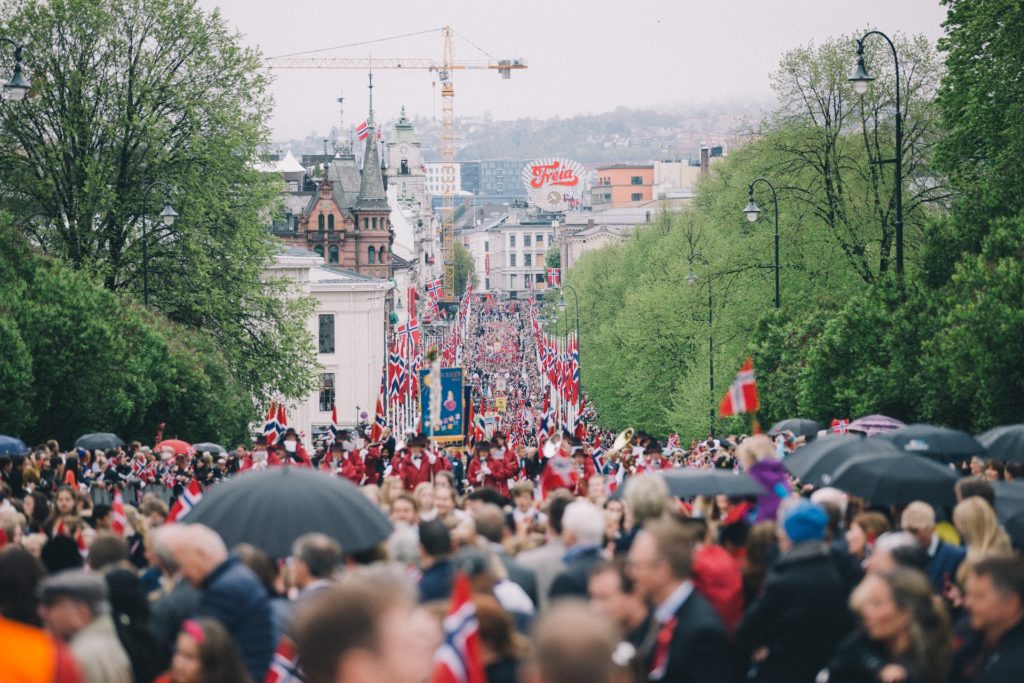A good opportunity to get to know more Norwegians, including your neighbors, is by joining a dugnad. This includes community work such as cutting trees, cleaning streets, or other volunteer activities. Often Norwegian apartment buildings or neighborhoods will do a dugnad every year.
There is some expectation from society that you’ll participate in these routines. No wonder everything is always so clean in Norway. It’s also one of the few chances you might get to talk with a shy Norwegian.
Finally, Norwegians will also give you respect for doing a dugnad. It’s a sign you want to contribute to society and don’t mind putting in the work.
Historical Roots
The term “dugnad” has deep historical roots in Norway, and its origins can be traced back to rural communities where it was vital for survival. In the past, people depended on each other to complete labor-intensive tasks like building homes, clearing fields, and fishing. These communal efforts often involved the entire village coming together to support one another.
While the nature of the tasks has evolved over time, the spirit of collaboration and community remains a defining characteristic of dugnad.
Modern Interpretations
Dugnad has evolved to encompass a wide range of activities, from maintaining public spaces to supporting local organizations and helping neighbors. Some common modern dugnads include:
- Cleanup Dugnads: Residents come together to clean up public areas, beaches, parks, and neighborhoods. These events often take place in the spring and autumn and help keep Norway’s beautiful natural surroundings pristine.
- Sports and Cultural Clubs: Many local sports teams and cultural organizations rely on dugnads for various activities. Volunteers assist with organizing events, maintaining facilities, and fundraising.
- Gardening and Agriculture: Community gardens and shared agricultural projects are popular. Neighbors collaborate to plant, tend to, and harvest crops, fostering a sense of self-sufficiency and sustainability.
- Festivals and Events: Local festivals, fairs, and events often depend on volunteers to set up, run booths, and ensure everything runs smoothly.
- Neighborhood Support: Individuals or groups may organize dugnads to help neighbors with tasks like moving, home repairs, or gardening.
The Role of Dugnad in Society
Dugnad is deeply ingrained in the Norwegian way of life and serves several essential roles in society:
- Community Building: Dugnad fosters a strong sense of community and social cohesion. It brings people together and strengthens social bonds, creating a supportive network of friends and neighbors.
- Shared Responsibility: Dugnad encourages personal responsibility and the understanding that everyone plays a part in maintaining the common good. It instills a strong sense of ownership in one’s community.
- Sustainability: By promoting activities like gardening and communal maintenance, dugnad contributes to sustainability and environmental awareness.
- Cultural Preservation: It helps preserve local traditions and cultural activities by supporting organizations and events that might otherwise struggle to continue.
- Inclusivity: Dugnad is inclusive and democratic; people of all ages, backgrounds, and abilities can participate. This promotes equality and a sense of belonging.
- Volunteerism: Dugnad promotes volunteerism and a sense of duty to contribute to one’s community. It teaches the value of giving time and effort for a greater cause.
Conclusion
Dugnad in Norway is more than just a tradition; it’s a way of life that underscores the importance of community, responsibility, and shared goals. It represents a commitment to preserving natural beauty, fostering strong bonds between neighbors, and ensuring the continuation of local traditions. As an essential part of Norwegian culture, dugnad is a testament to the enduring power of collective action and the values it imparts to society.
Becoming Norwegian
How to become a Norwegian by doing these things.








